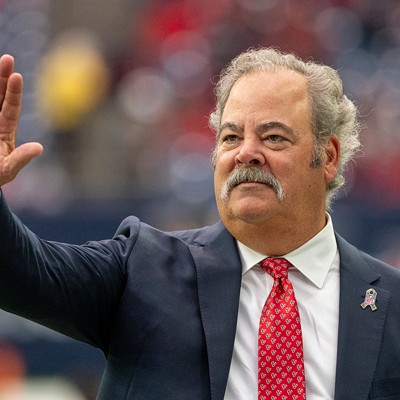In today's world of technology, it seems there is always a new controversy. They crop up in an instant and spread rapidly. Some, like the #MeToo movement, affect tremendous social change while others (cough...#TidePodChallenge...cough) seem to only set us back. But, what exactly is the responsibility of the companies that provide the platform for these things to exist?
Recently, the aforementioned #TidePodChallenge caused YouTube to remove videos of people inexplicably eating Tide detergent pods. Critics of the streaming video outlet owned by Google believe the network didn't act quickly enough and only after it was pressured by the detergent manufacturer. On Twitter, there have been calls to rein in an ever-increasing torrent of angry and hateful posts, even some by the President, frequently cited as violating Twitter's terms of use.
Online retail giant Amazon in recent days had to pull a line of products with the phrase "slavery gets s*** done" on them after numerous complaints and threats of a boycott. The offering came from a third-party vendor and were not sold directly by Amazon, but it didn't stop customers from threatening to stop using the service. Some even reportedly canceled their Prime memberships.
Finally, there is Facebook, which is facing a barrage of complaints from businesses after they altered their algorithm to place a greater emphasis on posts from people over companies. Businesses that rely on Facebook for marketing have pushed back saying the social media behemoth is hurting their bottom lines.
The question then begins to emerge: What responsibility do these companies bear for problems on their platforms? And it's a relevant question because it seems clear many people believe the answer is a lot.
Facebook, YouTube and Twitter all offer their services free of charge. They require following certain terms of service and they do have paid options, but most of us use them without spending a dime. Many businesses have benefited greatly from their presence and consumers (of goods, services, news and the like) have integrated them so tightly into their lives, any change is seen as a threat.
While Amazon charges vendors through service fees and offers Prime memberships to customers, which includes streaming shows and free shipping among other things, they are clearly a service upon which many rely for everything from television to shopping to web-related services like hosting.
As a result, all four are massive, heavily trafficked and nearly impossible to police. Imagine the case of the #TidePodChallenge. Many of the videos were not labeled as such and finding all of them would require actually watching them. Literally thousands of videos are uploaded onto YouTube every single day. Sifting through them all would be an impossible task. Ditto for Amazon's products from third-party vendors.
Twitter has to straddle the line between free speech and terms violations. Facebook is desperately trying to preserve its bloated network by limiting the impact of advertising while still monetizing themselves to the point they remain profitable.
Ultimately, the problem is part freedom, part capitalism. On one hand, these are free services (for the most part) providing unbelievably valuable resources to anyone who can get on the internet. On the other, they are also businesses, which require extensive resources just to remain afloat in some cases or to justify what they do to their employees and shareholders. They have to balance the financial responsibility of running a business with the open nature of the service they provide.
Look at Wikipedia. There is a reason they are always asking for donations and running funding drives. They provide an invaluable service for nothing. We all have to pay the bills at some point. But, unlike Wikipedia, which clearly is an altruistic endeavor, Twitter, Facebook, Amazon and YouTube are ultimately in this for the money and there is nothing wrong with that.
We all need to make money to pay bills for services provided by companies who employ other people who need money to pay their bills and so on. We have all become spoiled by what we have gotten for free, but eventually, virtually nothing is totally free. At some point, the cost of doing business catches up with everyone. And that means some inconveniences and cost for using these services or risk having them disappear altogether.
Never mind the fact that the perpetrators of all of these problems aren't services, but the users. Kids used YouTube. Crazy racists use Twitter. Businesses use Facebook and Amazon. Ultimately, the people using the platforms created the problems, most of which are specifically prohibited by the services through terms of use no one ever reads.
Granted, no one should feel sorry for Mark Zuckerberg or Jeff Bezos. These are billionaires. But, their services give jobs to thousands of people directly and deliver a platform that furthers the business and personal interests of countless people and companies across the globe. We've been riding a gravy train for nearly a decade now. Everyone should have know we'd eventually have to pay the fiddler.
Support Us
Houston's independent source of
local news and culture
account
- Welcome,
Insider - Login
- My Account
- My Newsletters
- Contribute
- Contact Us
- Sign out
Social (Media) Responsibility: Do Amazon, Twitter, Facebook and YouTube Owe The Public Anything?
Jeff Balke February 2, 2018 4:00AM

Posting videos of themselves eating Tide pods, kids took advantage of a free service. Is YouTube responsible for their stupidity?
Screenshot
[
{
"name": "Related Stories / Support Us Combo",
"component": "11591218",
"insertPoint": "4",
"requiredCountToDisplay": "4"
},{
"name": "Air - Billboard - Inline Content",
"component": "11591214",
"insertPoint": "2/3",
"requiredCountToDisplay": "7"
},{
"name": "R1 - Beta - Mobile Only",
"component": "12287027",
"insertPoint": "8",
"requiredCountToDisplay": "8"
},{
"name": "Air - MediumRectangle - Inline Content - Mobile Display Size 2",
"component": "11591215",
"insertPoint": "12",
"requiredCountToDisplay": "12"
},{
"name": "Air - MediumRectangle - Inline Content - Mobile Display Size 2",
"component": "11591215",
"insertPoint": "4th",
"startingPoint": "16",
"requiredCountToDisplay": "12"
}
,{
"name": "RevContent - In Article",
"component": "12527128",
"insertPoint": "3/5",
"requiredCountToDisplay": "5"
}
]
KEEP THE HOUSTON PRESS FREE...
Since we started the Houston Press, it has been defined as the free, independent voice of Houston, and we'd like to keep it that way. With local media under siege, it's more important than ever for us to rally support behind funding our local journalism. You can help by participating in our "I Support" program, allowing us to keep offering readers access to our incisive coverage of local news, food and culture with no paywalls.
Jeff Balke is a writer, editor, photographer, tech expert and native Houstonian. He has written for a wide range of publications and co-authored the official 50th anniversary book for the Houston Rockets.
Contact:
Jeff Balke
Trending News
- Houston Texans Uniform Leak-Gate Ends Today at 10 a.m.
- Four Reasons the Astros Are Bad at Baseball Right Now
- Rockets 2023-24 Report Card: The Rookies
-
Sponsored Content From: [%sponsoredBy%]
[%title%]

Don't Miss Out
SIGN UP for the latest
news, free stuff and more!
Become a member to support the independent voice of Houston
and help keep the future of the Houston Press FREE
Use of this website constitutes acceptance of our
terms of use,
our cookies policy, and our
privacy policy
The Houston Press may earn a portion of sales from products & services purchased through links on our site from our
affiliate partners.
©2024
Houston Press, LP. All rights reserved.





